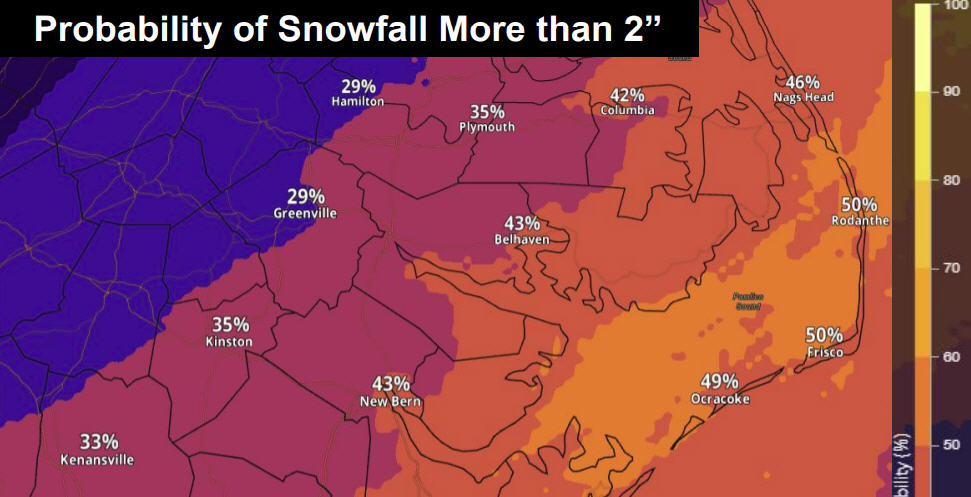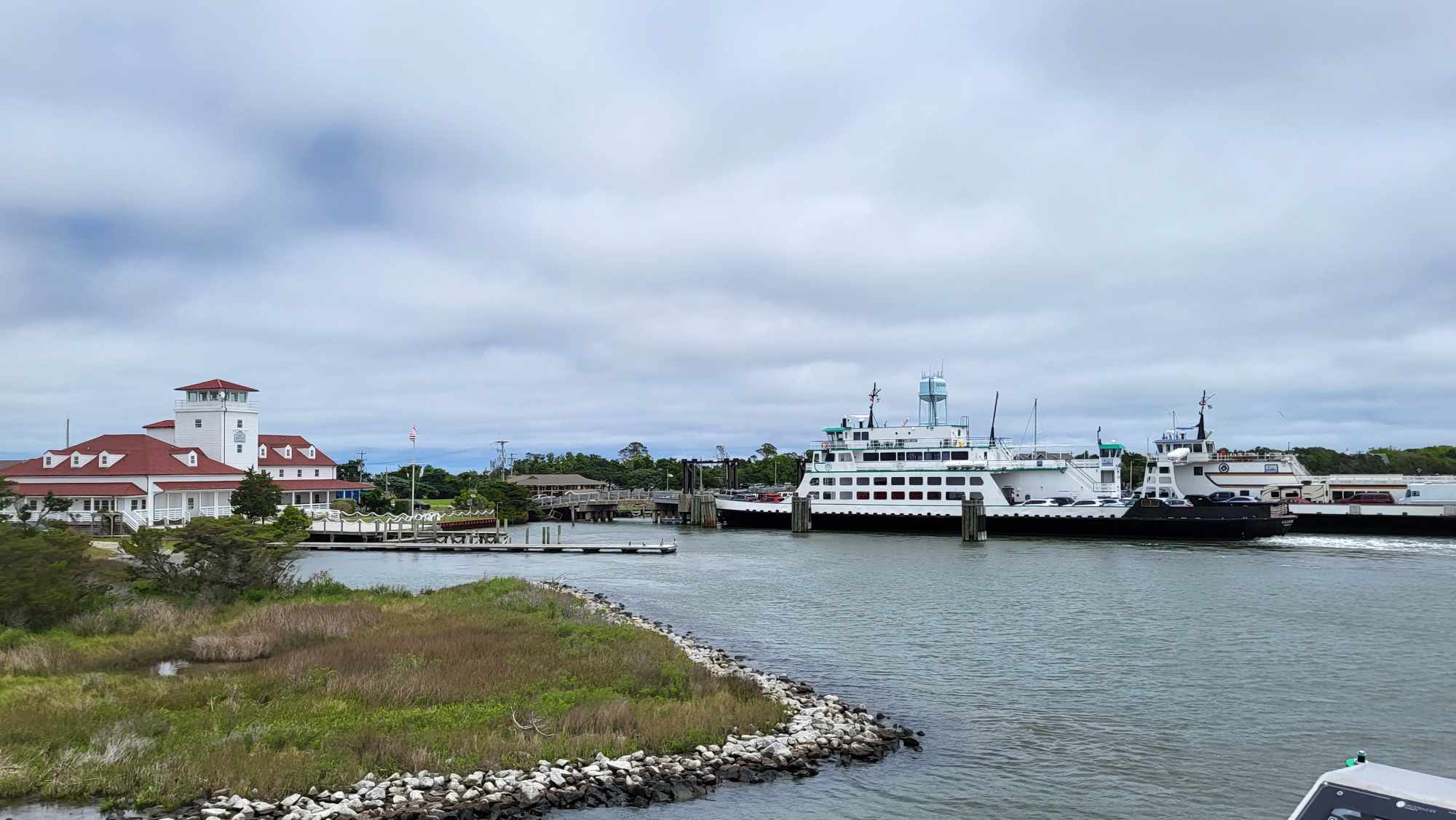Bag Ban Repeal Among Bills on Fast Track
Facing a key deadline later this week, legislators last week began a full-on push to move several bills affecting the coastal region, including a controversial repeal of the plastic bag ban in place on the Outer Banks since 2009.
On Thursday morning, the Senate Agriculture, Environment and Natural Resources Committee reviewed a new environmental omnibus bill and later that afternoon added several amendments, including language that mirrors a bill introduced in the House March 7 by Rep. Beverley Boswell, R-Dare, to repeal the longstanding ban on thin, single-use plastic bags.
Boswell’s bill and yet another aimed at repealing the ban were scheduled to be heard in committee meetings earlier last week,
endars before being heard.
The new provisions to repeal the bag ban were introduced by Sen. Bill Cook, R-Beaufort, who said it was time to end the prohibition. Cook, one of the committee co-chairs, said statistics from two beach cleanup projects before and after the ban proved it was ineffective.
“It puts an unnecessary burden on our job creators and it has become very costly to business,” he said.
Attorneys with the Southern Environmental Law Center questioned Cook’s maneuver to insert the repeal into new legislation with no notice, saying it shut out public comment.
The law center’s Brooks Pearson said local officials had planned to travel to Raleigh to challenge the repeal before the hearings were cancelled. She said the ban has strong support on the Outer Banks.
Since this year’s effort to repeal the ban began, several local boards have passed resolutions in support of the keeping the ban, including Kill Devil Hills, Manteo and Dare County. The Outer Banks Chamber of Commerce has also stated its opposition to repealing the ban.
Cook called the ban a feel-good measure.
“Just because something makes you feel good doesn’t mean it really helps anything,” he said in response to Pearson. “I don’t believe this ban does anything for the environment. I think it just makes some folks feel good, but it really doesn’t help anything.”
Elizabeth Robinson, a representative of North Carolina Retail Merchants Association told senators the repeal was a top priority for the organization’s members.
“As we talk about removing red tape and impediments to business, this continues to rise to the top of our members’ radar as something they would like to see removed,” she said. “We have heard from members in the area, small and large, that do not want to comply with this ban.”
Robinson said the ban has too many requirements and said the refund system of 5 cents for customers who shop with reusable bags had be
en a problem to implement.
Law center Attorney Mary Maclean Asbill said some parts of the law, such as the reusable bag refund, could be fixed without a complete repeal. She said the last-minute move had made finding any compromise difficult.
“With this bad process, there’s been no chance for amendments or discussion between all these businesses of the Outer Banks and citizens of the Outer Banks,” she said.
Ivy Ingram, co-chair of the Surfrider Foundation’s Outer Banks chapter, said she is hearing plenty of response to the repeal proposal.
“There’s a pretty big groundswell of opposition,” Ingram said.
When the foundation started reaching out to the towns and counties for support, Ingram said she found many were already preparing to go on record against it.
“They’re really doing it on their own,” she said. “The uproar has been so huge in opposition to the repeal.”
Ingram said Surfrider was a sponsor of the beach sweep and provided the statistics Cook cited. She said there wasn’t enough information in the report to support the senator’s conclusion. Ingram said the organization has reached out to Boswell and Cook to see if there were ways to address problems with the ban, but so far hadn’t heard back.
Either way, the clock is ticking.
The General Assembly’s crossover deadline is Thursday. Non-appropriations related bills that have not passed at least one chamber in the legislature by then are generally considered dead for the session, although exceptions happen.
Dozens of environmental provisions grouped into a half-dozen bills are expected to move through committees this week and on to floor votes ahead of the deadline.
Along with the bag ban repeal provisions in the Senate’s Environmental Amendments 2 bill, Senate Bill 434 include several changes in riparian buffer rules, including a prohibition on local governments requiring buffers wider than state or federal laws allow.
The bill also allows the state Division of Coastal Management and the Department of Environmental Quality to negotiate an agreement with the federal government to acquire dredged material easement sites and use money from the state’s shallow draft inlet-dredging fund for the sites for maintenance of the Atlantic Intracoastal Waterway north of Beaufort Inlet to the Virginia border.
Other items in Senate Bill 434 include another delay in the the implementation of the Jordan Lake and Fall Lake watershed rules and an attempt settle a running dispute in New Hanover County over the cost of implementing coastal stormwater requirements in one or more neighborhoods there.
Environmental Rules, Aquaculture
Bills Moving
Several other bills are expected to be heard in committees this week as both chambers work toward the crossover deadline on Thursday.
The House is expected to try and settle on requirements for coordination requirements with the state’s new Military Affairs Commission by developers of wind energy projects. The issue was the subject of a protracted disagreement between the House and Senate last year. The House Energy and Public Utilities Committee is scheduled to take up a compromise, House Bill 574, on Wednesday.
Up for a vote in the House on Monday is House Bill 56, Amend Environmental Laws, co-sponsored by Rep. Pat McElraft, R-Carteret.
The bill updates the state’s underground storage tank program, tightens wastewater spill reporting requirements and strikes a requirement that the Department of Environmental Quality draft a statewide water resources plan. It would also allow the Coastal Resources Commission to delegate the power to review county land use plans to a qualified DEQ employee.
One major environmental bill that’s already cleared the crossover deadline is this year’s edition of the regulatory reform bills passed each year since 2011. A final version was never voted on last year and several provisions from the 2016 bill, including provision on shoal sands dredging and sandbag rules, have been rolled into the 2017 version.
Different versions of the bill have cleared both chambers, but last week the Senate voted down the version passed by the House, setting up a conference committee to settle differences.
Aquaculture
On Thursday, the Senate Agriculture, Natural and Economic Resources Committee approved Senate Bill 410, the Marine Aquaculture Development Act, sponsored by Sens. Bill Cook, Norm Sanderson and Jerry Tillman. The bill is intended to create a permitting system for marine aquaculture in state and federal waters off North Carolina and gives the Division of Marine Fisheries authorization to work with federal agencies and fishery councils to develop a plan for developing and regulating operations.
It’s to add transparency requirements for the Marine Fisheries Commission requiring all members to have official email accounts and specifies that those accounts are public records and that any email exchange between a quorum of the council constitutes a public meeting.
The bill also makes several adjustments to the shellfish leasing program and standards for water column leasing as well as creating a new misdemeanor for poaching in leased areas.
Last week, several House leaders, including New Hanover County Rep. Ted Davis, introduced House Bill 867, the Coastal Fisheries Conservation and Economic Development Act. The bill amends statues on the Marine Fisheries Commission, expanding the powers of the commission to include enacting rules on commercial and recreational fisheries and authorizing agreements for law enforcement powers.
Another bill, Senate Bill 545, introduced by Reps. Beverly Boswell, R-Dare, Chris Millis, R-Pender, and Larry Pittman, R-Cabbarus, also deals with the powers of the Marine Fisheries Commission, adding requirements on the board’s use of input from public advisory committees.
Several local bills are also under consideration, including another Sunset Beach De-annexation bill, Senate Bill 289, which is scheduled to be heard in the Senate’s State and Local Government Committee on Tuesday.
Last year, a similar bill that included two island properties and one mainland property, stalled after it was strongly opposed by town officials. The new bill, sponsored by Sen. Bill Rabon, R-Brunswick, includes only the mainland property.
Other local bills include:
House Bill 459, Carteret Sales Tax for Dredging — Allows Carteret County to use a quarter-cent sale tax for dredging and waterway maintenance if approved by voters in a referendum and sets a threshold on the amount collected. The bill follows the defeat of a sales tax referendum in the county last year. Introduced by Rep. McElraft.
Senate Bill 76, Permit Nighttime Hunting of Coyotes — repeals the ban on nighttime hunting in Beaufort, Dare, Tyrell and Washington counties. Introduced by Sen. Cook;
House Bill 531, Dare County Local Tax Clarification — Allows Dare County additional flexibility to spend a portion of occupancy tax proceeds “to respond to burdens associated with the impact of tourism in peak season on the county, including increasing traffic control, police, lifeguard, and sanitation crew personnel.” Introduced by Rep. Boswell.
















